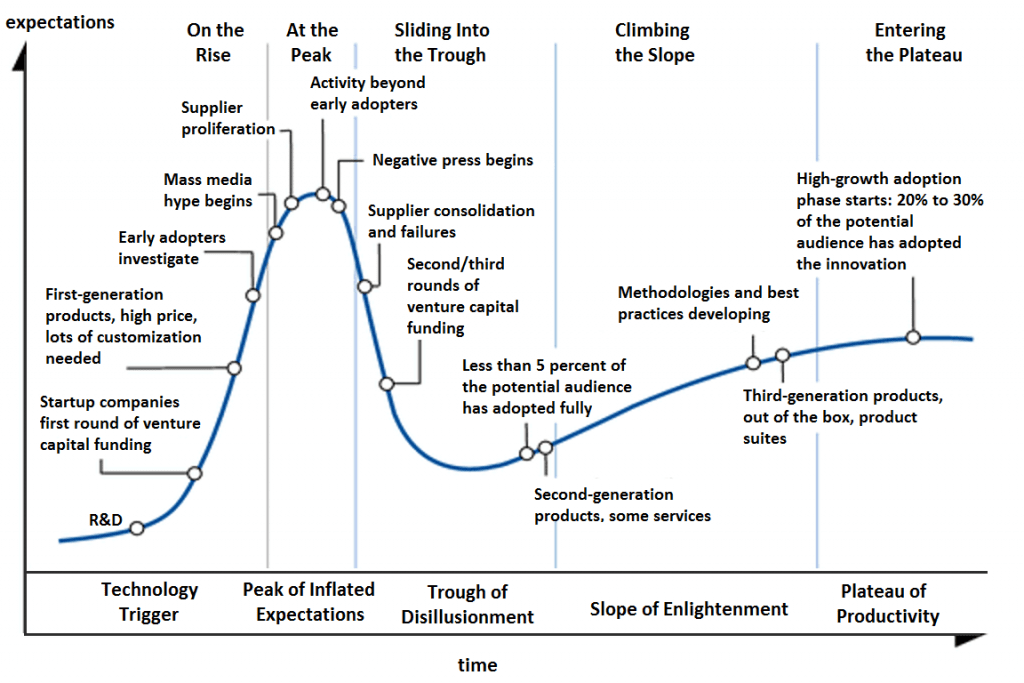Technology is a key force shaping our world today. New and emerging technologies such as Artificial Intelligence (AI), blockchain and quantum computing are already having a major impact on industry, politics and society. And as these technologies begin to overlap and converge, the pace of change is accelerating.

It is sometimes tempting to dismiss talk of emerging technology as overblown, and it is certainly true that it can at times be difficult to distinguish between hype and reality. However, it is important that civil society is able to navigate the hyperbole and engage with what is going on in technology, because as the futurist Roy Amara famously pointed out:
“Whilst we tend to overestimate the impact of technology in the short term, we also tend to underestimate it in the long term.”
The impact of the coming wave of technological disruption will be felt by philanthropic funders and civil society organisations (CSOs) in three main ways:
- Changes to the methods we have for addressing social and environmental challenges.
- Changes to the operating environment in which funders and CSOs work.
- The creation of new problems that philanthropy and civil society will be called upon to deal with.
There is a burgeoning field of “tech for good” approaches around the world, exploring how emerging technologies can be used to empower marginalised and disenfranchised communities around the world, or to address the major societal and environmental challenges we face today. Although there can sometimes be a gap between rhetoric which claims semi-miraculous technological fixes and the reality of messy, intractable real-world problems, there is no doubt that many tech for good projects are laudable and are driving real innovation when it comes to doing good.

Even CSOs who don’t want to proactively embrace ‘tech for good’ approaches in their work need to be aware of technological trends, because emerging technologies are disrupting the operating environment for many organisations and even entire industries. Artificial intelligence, for instance is enabling many processes to be automated, including those traditionally thought only possible with human involvement, and this is having a huge impact on the financial infrastructure and regulatory mechanisms that CSOs have to work within.
Likewise, emerging technologies are opening up new possibilities when it comes to giving and fundraising. Despite the scepticism of some, many still believe that cryptocurrencies such as Bitcoin and Ethereum are the first wave of an entirely new conception of money, and some CSOs have been able to tap into this by exploring how to engage with a new breed of ‘cryptophilanthropists’. Others, meanwhile, have been experimenting with fundraising using new tools such as voice-operated interfaces, virtual and augmented reality or the metaverse.

It can be hard for CSOs to know where to focus their efforts and resources, given the sheer amount of hype when it comes to new technologies and the knowledge required just to get started. Some are starting to engage, but there is still much more to be done when it comes to ensuring civil society is in a position to take advantage of the potential of emerging tech.
It is also increasingly clear that new technologies can bring significant negative consequences as well as benefits. Over recent years, for instance, there has been a great deal of scrutiny and concern about the role social media has played in coarsening and polarising public discourse, and the ways in which it has been used to subvert of the democratic process. Likewise, there is growing concern that the algorithmic decision processes now governing many aspects of our life are susceptible to biases that may have major adverse effects on certain groups and communities.

Even if CSOs do not feel that technology trends are important to them at this point, they should recognise that they are already highly relevant to many of the people and communities they serve. Hence it is important to engage with the issues.
The hope is that by doing so (with the help of philanthropists, funders and infrastructure organisations), CSOs are able to harness the potentially transformative benefits of new technologies, whilst at the same time playing a key role in minimising their downsides.

